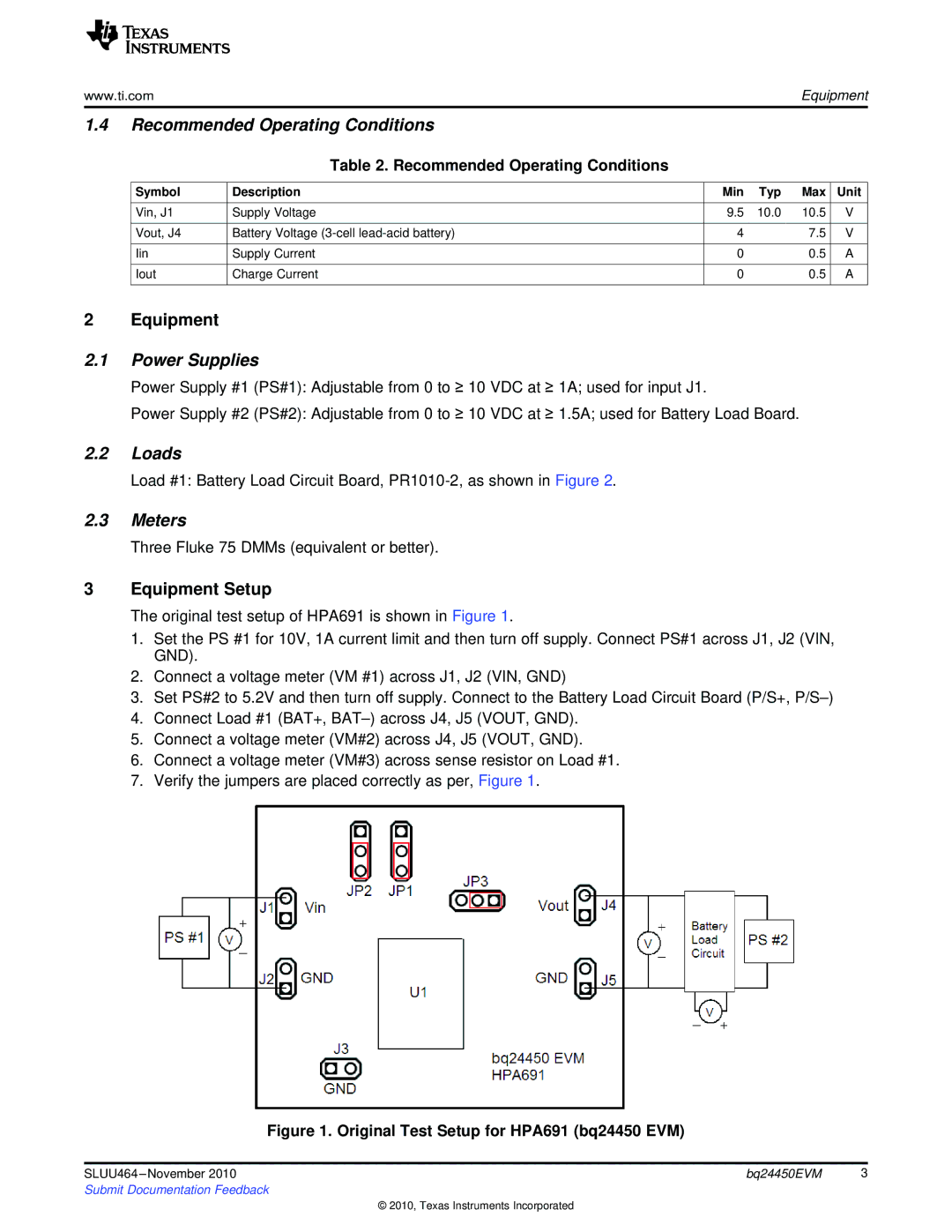
www.ti.com | Equipment |
1.4Recommended Operating Conditions
Table 2. Recommended Operating Conditions
Symbol | Description | Min | Typ | Max | Unit |
|
|
|
|
|
|
Vin, J1 | Supply Voltage | 9.5 | 10.0 | 10.5 | V |
|
|
|
|
|
|
Vout, J4 | Battery Voltage | 4 |
| 7.5 | V |
|
|
|
|
|
|
Iin | Supply Current | 0 |
| 0.5 | A |
|
|
|
|
|
|
Iout | Charge Current | 0 |
| 0.5 | A |
|
|
|
|
|
|
2 Equipment
2.1Power Supplies
Power Supply #1 (PS#1): Adjustable from 0 to ≥ 10 VDC at ≥ 1A; used for input J1.
Power Supply #2 (PS#2): Adjustable from 0 to ≥ 10 VDC at ≥ 1.5A; used for Battery Load Board.
2.2Loads
Load #1: Battery Load Circuit Board,
2.3Meters
Three Fluke 75 DMMs (equivalent or better).
3Equipment Setup
The original test setup of HPA691 is shown in Figure 1.
1.Set the PS #1 for 10V, 1A current limit and then turn off supply. Connect PS#1 across J1, J2 (VIN, GND).
2.Connect a voltage meter (VM #1) across J1, J2 (VIN, GND)
3.Set PS#2 to 5.2V and then turn off supply. Connect to the Battery Load Circuit Board (P/S+,
4.Connect Load #1 (BAT+,
5.Connect a voltage meter (VM#2) across J4, J5 (VOUT, GND).
6.Connect a voltage meter (VM#3) across sense resistor on Load #1.
7.Verify the jumpers are placed correctly as per, Figure 1.
Figure 1. Original Test Setup for HPA691 (bq24450 EVM)
SLUU464 | bq24450EVM | 3 |
Submit Documentation Feedback |
|
|
© 2010, Texas Instruments Incorporated
